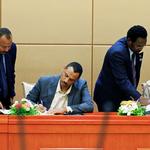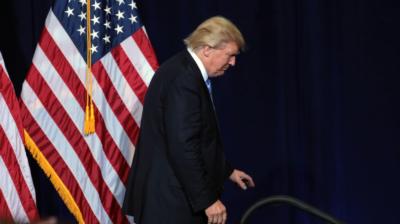Port Sudan caught in the international race to control the Red Sea region
The whole world is wrangling for control over the Red Sea region. The United Arab Emirates are playing all of their cards to secure control over the trade routes. And while Sudan is increasingly turning to Europe for partnerships, Russia and the US are ingratiating themselves with the transitional government. The race to gain control over Sudan’s ports is on.
In May 2019, immediately after the revocation of the Port Sudan Southern Terminal concession with the International Container Terminal Service (ICTSI), clashes between the Beni Amir and the Nuba ethnic groups broke out in Port Sudan. The unrest led to a curfew, and to the dreaded Rapid Support Forces (RSF) being deployed to the region to get the situation under control. But this didn’t happen for the first time. The Beni Amir and the Nuba have a long history of violent clashes. Many activists in Port Sudan claimed that the clashes were caused by something bigger than ethnic grievances; that the clashes were related to external forces attempting to destabilise the region to pass their agenda; to control the Port Sudan. Activists accused DP world (one of the leading and influential multinational port operators based in Dubai) of conspiring with the Transitional Military Council (TMC) and the remnants of the former regime to create tension in the region and of obstructing any democratic transition efforts and the establishment of a civil government.
The growing ambitions of the United Arab Emirates
These accusations do not come out of nowhere; DP World is infamous for how they operate the ports they rent. In his article 'Constructing Commercial Empire: The United Arab Emirates (UAE) in the Red Sea and the Horn of Africa', Rohan Advani illustrates that although DP World is privately owned, it has strong relations to the Emirati ruling families, and how, in practice, state and capital interests converge. The expansion of the DP World/ Emirati government in the Red Sea Region and the Horn of Africa is imperial in nature, juxtaposing international economic and political ambitions to control key trade routes. Advani states that DP World has played a significant role in state formation and fragmentation in the Horn of Africa and the Red Sea Region.
Like most of the Gulf Cooperation Council countries, the UAE has bought farmland in countries like Sudan and Ethiopia to protect their population from food insecurity and commodity price fluctuation. UAE’s foreign policy aims to extend its economic and political control over food global supply chains 'from the farm to the shelf' to achieve ultimate food security. In addition to that, many Emirates-based companies are investing in other sectors such as manufacturing, construction and real estate, infrastructure and logistics, and telecommunication to control the supply chains that connect the Red Sea and the Horn of Africa with Jabel Ali Port in Dubai. One of their strategies is to gradually take control over the trade routes in the region by getting concessions to operate seaports, like Port Sudan.
Additionally, the UAE is engaging in counter-piracy and counterterrorism operations, fighting Somali Pirates and terrorist groups like Al-Shabab. This intervention has allowed DP World to penetrate Somaliland seaports such as the Port of Berbera and invest heavily in the securitisation of the area by training local marine police forces - even paying their salaries. DP World is now renting seaports on the coast of Somalia, namely, Bosaso Port, using them to construct military and free zones. DP World’s interventions in the Red Sea and the Horn of Africa are in reality an infringement on state sovereignty, and recognizing this, several national governments have revoked their concession deals, for instance, Doraleh container terminal.
DP World is now renting seaports on the coast of Somalia, namely, Bosaso Port, using them to construct military and free zones.
Being very well aware of the political context in which this is happening, Sudanese activists observing the situation in the Red Sea State now fear that the outbreak of violence in Port Sudan will enable DP World to intervene by claiming that their trade routes must be protected. This situation will eventually strengthen their position in controlling supply chains in the Red Sea Region and Horn of Africa after they lost the deals to manage seaports in Yemen and Djibouti.
After the uprising, the UAE has supported the Sudanese military and paramilitary forces under the pretext of stability. Especially now, after the Islamists are out of the political scene- at least officially- the UAE has a paved path to venture in the political and the economic landscape of Sudan, with less competition from Qatar and Turkey who were the main competitors, during the former Islamist regime, to control the Red Sea Region via managing Sudan’s seaport, its coastline, and its territorial waters. Additionally, the Emirates has support from the powerful allies, namely the military side of the Sudan Transitional Supreme Council (STSC) and some of the members in the Forces of Freedom and Change (FFC).
After the uprising, the UAE has supported the Sudanese military and paramilitary forces under the pretext of stability.
Turning to Europe
However, the transitional civilian government led by Prime minister Hamadok is directing its attention to Western countries. There is a general impression that economic cooperation with Europe is more rewarding due to their agenda of "stabilising" African economies and reducing migration push factors.
Could this interest in reducing migration from Africa be the main reason why Germany is now in the driver’s seat mobilising international support for Sudan's transitional process? Germany played a significant role in organising the Friends of Sudan Initiative in 2019 to facilitate international support for Sudan's political and economic transition. Germany and its partners realise that any outbreak of violence in Sudan can destabilise the whole region of Northeast Africa and create another migration crisis. After the TMC reached an agreement with the Forces of Freedom and Change (FFC), German officials visited Sudan. The first visit was the Minister of Foreign Affairs Heiko Maas; the second visit was by the Federal Minister of Economic Cooperation and Development, Gerd Müller; and the third visit was by the German President Frank-Walter Steinmeier. Germany immediately lifted the 1989 economic ban on Sudan, and offered 82 million Euros in financial aid.
Could this interest in reducing migration from Africa be the main reason why Germany is now in the driver’s seat mobilising international support for Sudan's transitional process?
Sudan is now seeking partnership with Europe regarding seaports’ development and management of the Southern container terminal. This cooperation is not entirely new though. Germany has been involved in Port Sudan's development for quite some time. Hamburg Port Consulting was an international advisor for the Sea Ports Corporations (SPC) during the bidding stage of the concession won by ICTSI. In addition, Hamburg Port Training Institute provided the SPC staff training in container terminal management, operations, and planning, which are also conducted in HPC cooperation with SPC.
Mirghani Musa, the Minister of Transport, denied any tendency to sell or privatise PSST. In an interview with Radio Dabanga, Musa stated that PM Hamadok approved the Hamburg Ports Company deal to facilitate exports and imports in the southern terminal. He explained that the most prominent problems of the container port are the overcrowding and obstacles that prevent the flow and technical, administrative, and other problems related to logistics and operation. Hamburg Ports Company summarised the issues of PSST in four main points: safety, periodic maintenance, spare parts for machines, a review of the way they work, and defining responsibilities and the functional structure of controlling operations. This approach to seaport development attracted the interest of the civilian components of the transitional government who are advocating for technocratic solutions to up lift Sudan’s economy.
Building military alliances
The military component of the STSC is seeking to consolidate its relationships with almost all global forces interested in Port Sudan. Warships from the US and Russia have visited Port Sudan. The Russian warship visit to Port Sudan was based on an agreement for Russia to build a naval base in Sudan's territorial waters. The guided-missile destroyer USS Winston S. Churchill (DDG 81) arrived in Port Sudan, for a scheduled port visit, March 1, 2021. The Director of Intelligence, Rear Adm, stated that after lifting Sudan's name from the list of countries that support terrorism, the US Armed Forces now strive to build a partnership with the transitional government.
Warships from the US and Russia have visited Port Sudan.
There is a considerable disagreement regarding whom to partner with in the process of reviving Sudan's seaports. The strategic location of Port Sudan poses a massive challenge to Sudan's democratic transition as the disagreement of the transitional government's components over the fate of Sudan's seaport is growing. The race of the global forces to control the Red Sea Region will never end. Therefore, the stability of Eastern Sudan must be a top priority to protect Sudan's economy and state sovereignty.
This Sudan blog post is written by Azza Mustafa Babikir Ahmed. She is an anthropologist and Postdoctoral Fellow at the Institute for Humanities in Africa, University of CapeTown.
The views expressed in this post are those of the author, and do not necessarily reflect the opinions of the ARUS project or CMI.







